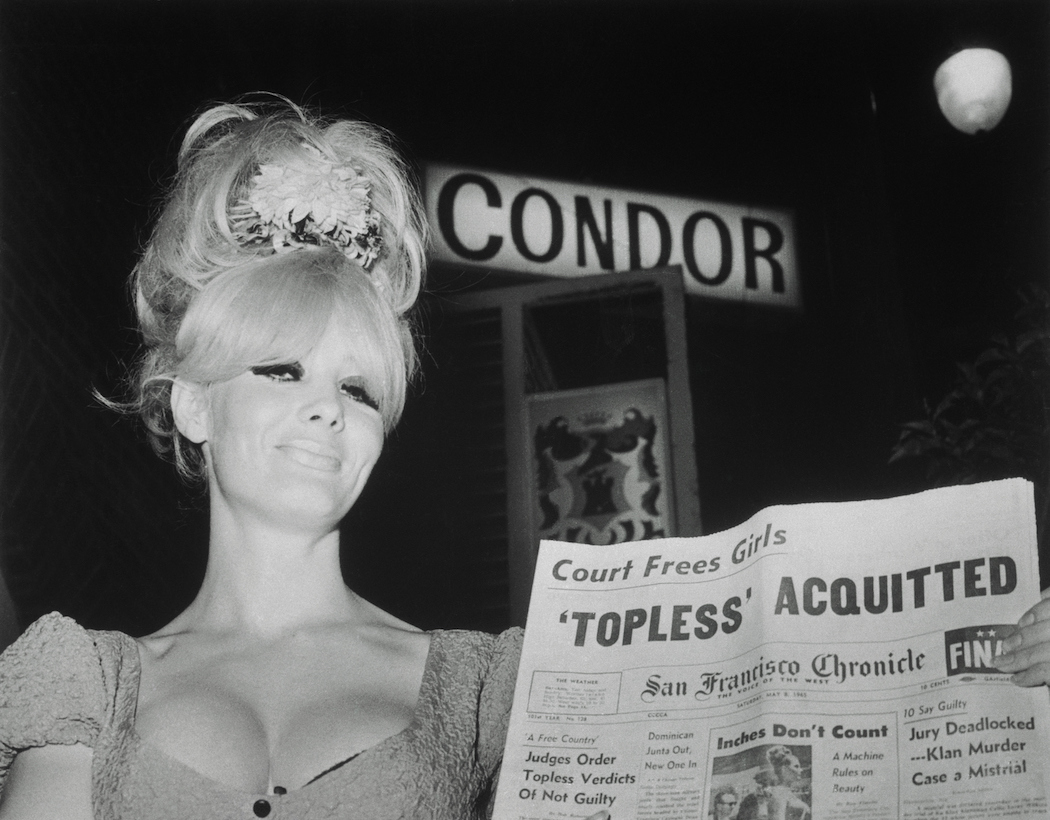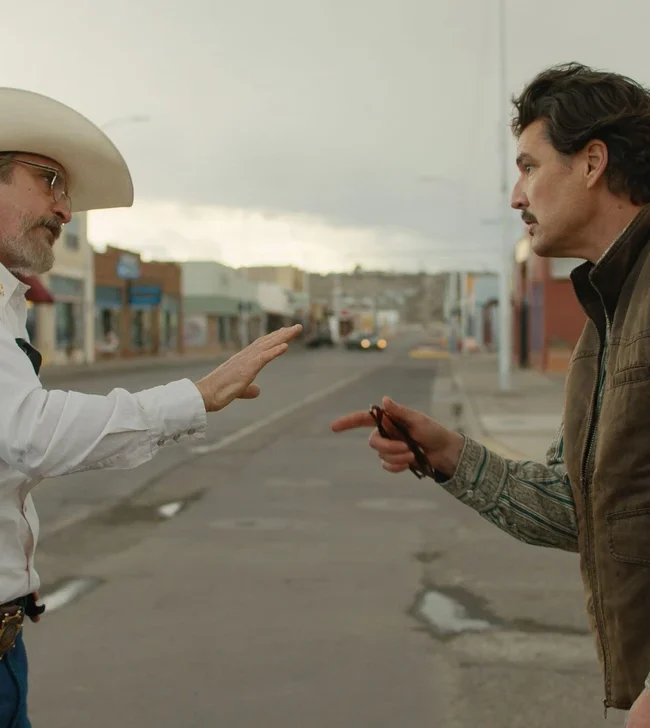CAROL DODA TOPLESS AT THE CONDOR

(Check out Chris Reed’s movie review of Carol Doda Topless at the Condor. It hits theaters nationwide Friday, March 29. Seen it? Join the conversation with HtN on our Letterboxd Page.)
There was a brief moment when topless dancing seemed as progressive as it was transgressive (as well as simultaneously empowering and exploitative). The year was 1964 and the city was San Francisco, in California’s Bay Area. Carol Doda (1937-2015) was the woman at the center of the hoopla when she agreed to first wear a monokini and then nothing at all above the waist. Nudity sells, and she had what people wanted.
In their new documentary, Carol Doda Topless at the Condor, directors Marlo McKenzie and Jonathan Parker (The Architect) follow Doda’s story and the changes she inspired. They contextualize her decision to strip within the evolving sexual liberation of the 1960s and bring in a variety of historians to explain what ensued. They also interview the remaining survivors of the era, including Doda’s competitors and colleagues.
What exactly is the appeal of breasts, anyway? According to our experts here, before World War II it was actually legs that drew the most attention. But with the invention of good baby formula and the bottles to go with it, more women in the 1940s and beyond were able to walk around without children hanging from their chest, and popular tastes began to change. By the time the 1960s hippie generation started coming of age, mammary glands were hip.
Enter Carol Doda, working as a waitress at the Condor, a club on Broadway in San Francisco’s North Beach neighborhood. It was a happening district—known as “Off-Season Vegas” and “Bagdad by the Bay”—with plenty of dancing and scantily clad women, but no naked chests. Until Doda, with the strong encouragement of the club’s owners, went full topless.
Pandemonium ensued, and business boomed. Soon, other clubs followed suit. But it was illegal. Until it wasn’t, thanks to the women and club owners winning the subsequent trial, making San Francisco the first city to allow topless stripping. Though from our modern perspective the entire enterprise is inextricable from sleaze, back then this was a big deal, capturing international attention.
McKenzie and Parker do a fine job with the history, assembling an excellent team of talking heads to discuss the chronology of events and make the case for Doda’s importance as a figure of cultural revolution. There’s a lot more here than prurience, though expect many archival shots of women naked above and below the waist (for once topless dancing was allowed, the bottom came next). Still, breasts are front and center.
Especially when we learn how the pressure to deliver the goods in as large a package as possible led to people like Doda injecting industrial-grade silicone and then later suffering the consequences. There was a brutal price to pay for satisfying the male gaze, no matter how much some might argue the case for stripping as a feminist exercise. The body can only take so much abuse.
Unfortunately, despite the film’s many narrative strengths, McKenzie and Parker are no great cinematic pioneers, Carol Doda Topless at the Condor often presenting its content in a rather pedestrian back-and-forth from interviews to archival, rinse and repeat. They also take on a few too many plot threads, not doing full justice to all and rather rushing the conclusion. The net result nevertheless holds our interest, and the information sticks. These bare truths very much still resonate today.
– Christopher Llewellyn Reed (@ChrisReedFilm)
Picturehouse; Carol Doda Topless at the Condor movie review, Marlo McKenzie, Jonathan Parker











